SUMMARY
This is AI generated summarization, which may have errors. For context, always refer to the full article.

CEBU, Philippines – After a decade-long delay, the P16-billion Cebu Bus Rapid Transit (BRT) Project officially broke ground at the Fuente Osmeña Circle in Cebu City on Monday, February 27.
President Ferdinand “Bongbong” Marcos Jr. was the guest of honor at the event. It was his first visit to Cebu since he won the May 2022 elections. Cebu, the country’s most vote-rick province gave him 1.5-million of its 3.2-million votes, or a million-vote margin over the second-placer, then-vice president Leni Robredo.
“Today, we are finally here to implement this plan and recalibrate the transport system of Metro Cebu,” Marcos said.
The Cebu BRT promises a safe and affordable public transportation system in Metro Cebu and the province. The Department of Transportation (DOTr) announced a 60,000-passenger daily capacity in its first year of partial operations, starting in the fourth quarter of 2023.
The BRT blueprint indicates that by 2025, it will be able to accommodate around 160,000 passengers per day.

“We must commend the Department of Transportation for initiating the first bus rapid transit system in the Philippines. As usual nauna nanaman ang Cebu,” Marcos said.
Paul Gotiong, head of Cebu City’s Transportation Office, said the local government is set to begin construction along Osmeña Boulevard right after the groundbreaking.
Phase 1 of the Cebu BRT system was awarded to Hunan Road and Bridge Construction Group Co., Ltd..
Compensation, relocation issues
During the groundbreaking ceremony, Marcos also reminded the DOTr “to ensure just compensation to the property owners who will be affected by the Cebu BRT project.”
“I also urge you to find ways to properly relocate the affected informal settler families,” Marcos said, addressing one of Cebu’s most contentious development issues.
The DOTr’s final report on the resettlement plan for the Cebu BRT notes that the project needs 9.3 hectares of land.
“Approximately 70% or 6.63 hectares of the land is private. Acquisition of this land is reckoned to cost P620.5 million using SIR zonal valuation,” read the report.
There’s still no clear number of affected informal settler families. But the DOTr estimated the total resettlement cost for displaced persons to be P110.6 million.
The national government promised to provide around 30,000 housing units for Cebu City residents under its flagship project, the Pambansang Pabahay Para sa Pilipino Program (4PH).
On Monday, February 27, Marcos Jr. also led the groundbreaking ceremony for the South Coastal Urban Development Project at the South Road Properties in Cebu City. The project will construct medium-rise buildings (MRBs) for residents affected by the LGU’s river-clearing operations.

What delayed the Cebu BRT?
In January 2021, the DOTr under then-president Rodrigo Duterte said it was eyeing the partial operations for the Cebu Bus Rapid Transit (BRT) at the end of that year.
That was a decade after then-mayor Tommy Osmeña first proposed the plan in 2001. Osmeña said he was inspired by the successful model in Curitiba, Brazil during a 1995 visit.
In 2009, the Cebu City local government initiated the project and conducted a pre-feasibility study, which the city council approved in 2010.
Later on, the World Bank would conduct another feasibility study for the project, completing this in 2012.
On November 2012, the Investment Coordination Committee (ICC) approved the Cebu BRT project.
The first of many delays to the Cebu BRT came from the National Economic Development Authority (NEDA) in the same year.
Engineer Nigel Paul Villarete, who served as the Cebu BRT project development officer, said that the delay was due to the question of whether or not it was the right mode of transportation for Cebu City.
“This is just so difficult to answer because it has passed through all the technical studies, it has passed through all the approval process of NEDA, and then I think it was the Office of the President (then-president Benigno Aquino III) that was not sure,” Villarete said.
It was only in May 2014 that NEDA, that the Aquino administration approved the project with a budget of P10.6 billion.
In the same year, the Department of Budget and Management (DBM) approved the funding strategy for the Cebu BRT. After this, the government signed a loan from the World Bank and French Development Agency.
New roadblock
Procurement began in 2016 but the project met another major roadblock from experts and officials under then-president Rodrigo Duterte..
Sunstar quoted Arizona State University professor Douglas Webster in 2017 as saying that Cebu’s roads were “too narrow for a BRT to work”.
Then-Presidential Assistant for the Visayas Michael Dino also lobbied to have the BRT scrapped in favor of a light rail transit (LRT) system.
In 2018, the DOTr requested NEDA to cancel BRT projects in Cebu and in Metro Manila.
However, months later, after an inspection with World Bank and NEDA, DOTr finally decided to push through with the BRT projects. Revisions were also made to the project, which include changes in the overall design, route alignments, and budget, which ballooned to P16.3 billion.
From 2019 to 2021, the Cebu BRT project was able to progress but was halted for a short period due to Typhoon Odette, which devastated multiple parts of Cebu and the rest of the Visayas region.
–Rappler.com
Add a comment
How does this make you feel?


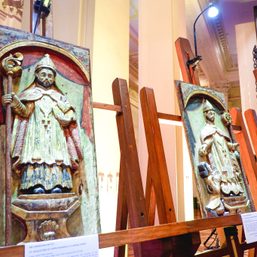
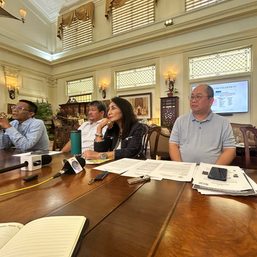

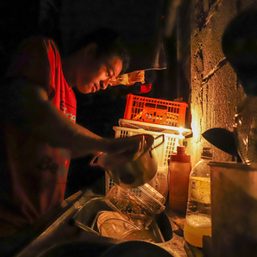

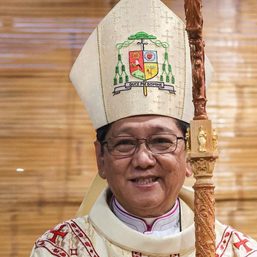
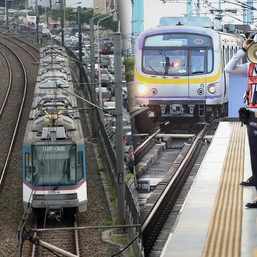

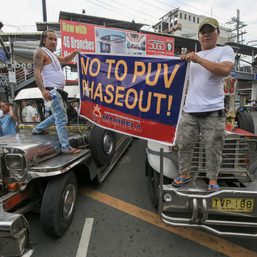
![[OPINION] Cities and public spaces should be for people first](https://www.rappler.com/tachyon/2024/04/imho-people-first-city-04132024.jpg?resize=257%2C257&crop_strategy=attention)
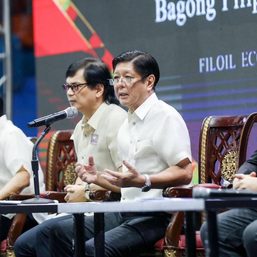
There are no comments yet. Add your comment to start the conversation.